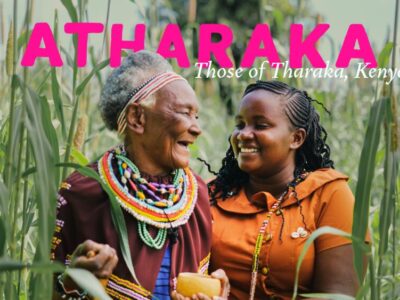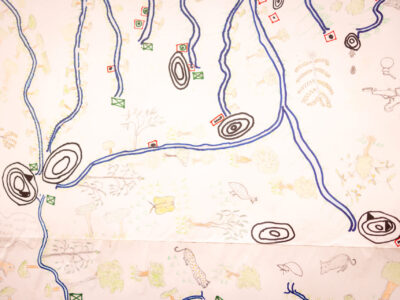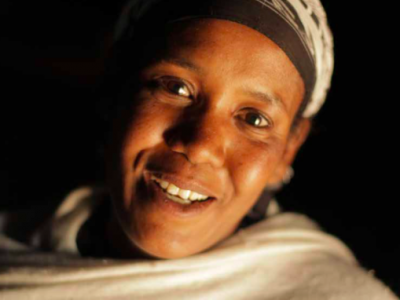Earth Jurisprudence
Scroll deeper:
In this interactive long read, we explore the principles of Earth Jurisprudence, where they came from and why they are crucial for our future, illustrated by examples of African leaders putting Earth Jurisprudence into practice with their communities and landscapes.
A growing global movement committed to systemic change, through the philosophy and practice of Earth Jurisprudence, is recognising Nature as the primary source of law and ethics:
Earth Jurisprudence recognises that the Earth is embedded in a lawful and ordered Universe. Our Earth uniquely sustains life as we know it through a complex system of living processes and laws, as a self-regulating planetary organism. All species, including humans, are inextricably subject to these laws and processes.
Cultural historian, poet and geologian, Thomas Berry named this understanding of the Earth as the primary source of law, and reminded us that for most of human history, human societies across our planet have conceived law in this way. In order to comply with these life governing laws, traditional societies have derived their ethics, customary laws and governance systems from the laws of the Earth. This is rooted in the understanding that disturbing the dynamic equilibrium which sustains the conditions for life, would ultimately lead to chaos.
Earth Jurisprudence is a philosophy, a way of seeing and relating to the living world out of which we have evolved, with due respect and humility. It enables us to recognise that the dominant assumption underpinning the industrial growth model – that humans are superior and can extract from life endlessly – is both flawed and dangerous. We are now living the consequences of this inflated belief, as we face the chaos of multiple interconnected ecological, climate and social crises on a planetary scale.
The antidote to this hubristic conception of ourselves, said Thomas Berry, is to concertedly transform our way of thinking from the dominant anthropocentric or human-centred lens to an Earth-centred understanding of how we can conduct our lives in a mutually enhancing relationship with those with whom we have co-evolved.
Inspired by the cosmologies and cultural practices of indigenous peoples who see life from an Earth-centred, rather than a human-centred perspective, Gaia embraced Thomas Berry’s potent ideas and embedded them in our approach. We accompany communities in the Amazon and Africa and in nurturing an Earth Jurisprudence movement through trainings and collaboration. Together we are establishing policies for recognising Earth-centred governance, and tracking the evolution of the global Earth Jurisprudence movement – an idea whose time has come.
In recent years there has been a welcome global surge in recognition of Earth Jurisprudence – ranging from the United Nations’ Harmony with Nature dialogues, to International Union for the Conservation of Nature (IUCN), and African Commission for Human and Peoples’ Rights, as well as a growing number of precedents recognising Earth-centred customary governance systems and the Rights of Nature.
You can find out more about our work in this progressive yet ancient space by clicking on the links and films below.

Earth Jurisprudence Story of Origin
The seed of Earth Jurisprudence began germinating in 1999 when Thomas Berry published 'The Great Work' calling for a radical transformation of the dominant conception of law and governance systems, for the wellbeing of the whole Earth Community. Read more

Sign up to Gaia's Earth Jurisprudence Updates
Every month we gather together the most exciting Earth-centred news and inspiration from around our living planet. In this archive we gather together these updates and share how you can sign-up for future editions. Read more

Discover the African Earth Jurisprudence Collective
The African Earth Jurisprudence Collective is made up of dedicated Earth Jurisprudence Practitioners from across East, West, Central and Southern Africa, working closely with The Gaia Foundation and the Siama Programme. Read more

Decolonising stories of Earth Jurisprudence
Three stories from Uganda, Kenya and Zimbabwe illustrate how African communities are decolonising their cultures, reviving their ecosystems and pursuing Earth Jurisprudence. Read more
Related news

ATHARAKA (‘those of Tharaka’)
A new short film – out today – follows Kenyan clans reviving the ecological and cultural diversity of their ancestral lands. Watch it below, on YouTube, Vimeo, or with our… Read More

Eco-Cultural Mapping in Zimbabwe
Two communities in Southeast Zimbabwe’s Bikita district came together to map their ancestral territory and seasonal calendar, in the first stage of a process learnt from the Colombian Amazon. When… Read More
Useful reports & publications

Fighting for our Shared Future: Protecting both Human Rights and Nature’s Rights
When Nature’s rights to be, to evolve and to remain healthy are violated, human rights are violated in the process. To achieve the human rights fought for and cherished by… Read More

Celebrating African Rural Women: Custodians of Seed, Food & Traditional Knowledge – A Report from Gaia
Celebrating African Rural Women: Custodians of Seed, Food & Traditional Knowledge for Climate Change Resilience is a report from The Gaia Foundation in collaboration with the African Biodiversity Network and… Read More











